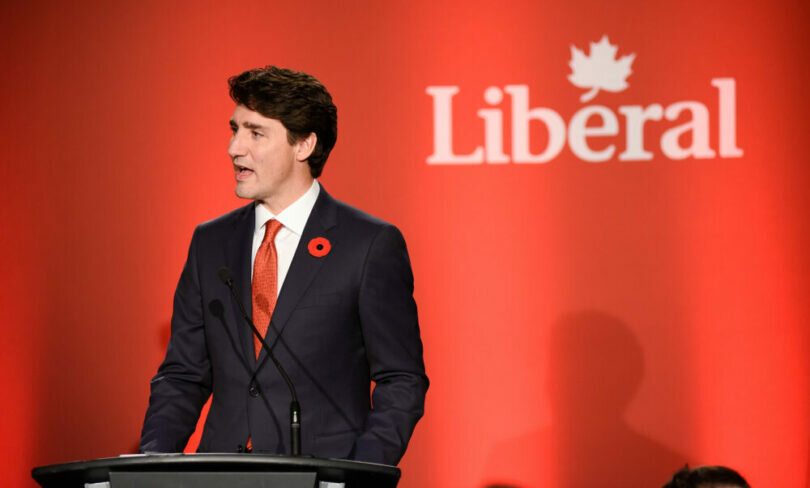Alberta
Alberta and British Columbia set to gain federal ridings from Liberal-held Ontario areas

From LifeSiteNews
Three Liberal-held ridings in Toronto and northern Ontario are set to be given to British Columbia and Alberta this spring, providing a potential benefit to the Conservative Party in the next election.
Alberta and British Columbia are set to gain more federal ridings, which could increase Conservatives’ chances of a federal victory in the next election.
According to a memo published October 10 by Blacklock’s Reporter, the next federal election will see fewer Members of Parliament (MPs) in Toronto and northern Ontario, and more in Okanagan, British Columbia, and suburban Alberta.
“One of our election readiness activities this year relates to electoral boundaries redistribution,” Chief Electoral Officer Stéphane Perrault testified at the House affairs committee.
The changes will come into effect under the Electoral Boundaries Readjustment Act on April 22, 2024, and elections after that date will “take place under the new map.”
The redistribution aims to rebalance the seats proportionately to population growth within the provinces. It will mean a record 343 seats in the House of Commons. Currently, ridings are divided into 122 in Ontario, 78 in Québec, 43 in British Columbia, 37 in Alberta, 14 in Saskatchewan, 14 in Manitoba, 11 in Nova Scotia, 10 in New Brunswick, 7 in Newfoundland and Labrador, 4 in Prince Edward Island and 1 each in the Yukon, Northwest Territories and Nunavut.
Under the new distribution, Toronto will lose the Scarborough-Agincourt riding held by Liberal MP Jean Yip, going from 25 to 24 federal ridings. Last election, all 25 Toronto ridings voted for the Liberals, at 51 percent support, making it the party’s largest popular vote in any major Canadian city.
“It is necessary to move a district to other areas of the Greater Toronto Area that, while equally diverse, are growing much faster than the City of Toronto,” said the Final Report of The Federal Electoral Boundaries Commission For The Province Of Ontario.
“The population of the City of Toronto only grew by 6.9 percent from 2011 to 2021 compared to 11.7 percent for the remainder of the province,” it wrote, arguing that keeping 25 seats in Toronto would “unfairly impact other parts of Ontario.”
Additionally, Northern Ontario is set to lose one of its nine ridings. In 2021, most ridings in Northern Ontario voted Liberal, with the exception of Kenora (Conservative MP Eric Melillo) and Timmins-James Bay (New Democrat MP Charlie Angus).
“We are in a very fragile time for democracy,” MP Angus testified May 8 at the House affairs committee. “We must do our best to reassure citizens that their voice counts and that they are being heard.”
Ontario’s ridings are set to be given to western provinces. British Columbia, which typically votes Liberal or New Democrat, will gain one new seat, Vernon-Lake Country in Okanagan.
On the other hand, Alberta, a historically Conservative province, is set to gain three ridings in Calgary McKnight, Airdrie-Chestermere and Spruce Grove-Leduc.
The Alberta ridings are not the only factor pointing to a Conservative victory next fall. Recently, Canadians have become increasingly fed up of Prime Minister Justin Trudeau’s leadership.
A September poll revealed that Trudeau’s disproval rates have reached a record high of 57 percent. The number should not come as a surprise as the polling also showed that 72 percent of Canadians are concerned with rising costs of living amid Trudeau’s ever-increasing carbon tax and energy regulations.
According to a September 5 report by Statistics Canada, food prices are rising faster than the headline inflation rate – the overall inflation rate in the country – as staple food items are increasing at a rate of 10 to 18 percent year-over-year when compared to the overall inflation rate of 4 percent.
Earlier this year, the Bank of Canada admitted that Trudeau’s federal “climate change” programs, which have been deemed “extreme” by some provincial leaders, are indeed helping to fuel inflation.
Furthermore, as a result of the Trudeau government’s Online News Act, Canadians can no longer access news on Facebook or Instagram as Meta refuses to pay the fees mandated by the act.
On the other hand, Conservative Party leader Poilievre has openly condemned the Online News Act, comparing it with George Orwell’s dystopian novel “1984.”
Furthermore, Poilievre has repeatedly promised Canadians that he will axe the carbon tax and restore the economy if elected prime minister.
Poilievre, however, is not without his own host of issues in the eyes of social conservatives.
While Trudeau came out to condemn the September 20 Million Person March against LGBT indoctrination in schools, Poilievre initially failed to support the immensely popular pro-family effort, and even went as far as having his office tell his caucus to refrain from making any statements about the movement.
Poilievre did eventually break his silence on the matter, slamming Trudeau for his condemnation of concerned parents and encouraging the federal government to leave LGBT discussions to families and not the education system.
Alberta
Energy sector will fuel Alberta economy and Canada’s exports for many years to come

From the Fraser Institute
By any measure, Alberta is an energy powerhouse—within Canada, but also on a global scale. In 2023, it produced 85 per cent of Canada’s oil and three-fifths of the country’s natural gas. Most of Canada’s oil reserves are in Alberta, along with a majority of natural gas reserves. Alberta is the beating heart of the Canadian energy economy. And energy, in turn, accounts for one-quarter of Canada’s international exports.
Consider some key facts about the province’s energy landscape, as noted in the Alberta Energy Regulator’s (AER) 2023 annual report. Oil and natural gas production continued to rise (on a volume basis) in 2023, on the heels of steady increases over the preceding half decade. However, the dollar value of Alberta’s oil and gas production fell in 2023, as the surging prices recorded in 2022 following Russia’s invasion of Ukraine retreated. Capital spending in the province’s energy sector reached $30 billion in 2023, making it the leading driver of private-sector investment. And completion of the Trans Mountain pipeline expansion project has opened new offshore export avenues for Canada’s oil industry and should boost Alberta’s energy production and exports going forward.
In a world striving to address climate change, Alberta’s hydrocarbon-heavy energy sector faces challenges. At some point, the world may start to consume less oil and, later, less natural gas (in absolute terms). But such “peak” consumption hasn’t arrived yet, nor does it appear imminent. While the demand for certain refined petroleum products is trending down in some advanced economies, particularly in Europe, we should take a broader global perspective when assessing energy demand and supply trends.
Looking at the worldwide picture, Goldman Sachs’ 2024 global energy forecast predicts that “oil usage will increase through 2034” thanks to strong demand in emerging markets and growing production of petrochemicals that depend on oil as the principal feedstock. Global demand for natural gas (including LNG) will also continue to increase, particularly since natural gas is the least carbon-intensive fossil fuel and more of it is being traded in the form of liquefied natural gas (LNG).
Against this backdrop, there are reasons to be optimistic about the prospects for Alberta’s energy sector, particularly if the federal government dials back some of the economically destructive energy and climate policies adopted by the last government. According to the AER’s “base case” forecast, overall energy output will expand over the next 10 years. Oilsands output is projected to grow modestly; natural gas production will also rise, in part due to greater demand for Alberta’s upstream gas from LNG operators in British Columbia.
The AER’s forecast also points to a positive trajectory for capital spending across the province’s energy sector. The agency sees annual investment rising from almost $30 billion to $40 billion by 2033. Most of this takes place in the oil and gas industry, but “emerging” energy resources and projects aimed at climate mitigation are expected to represent a bigger slice of energy-related capital spending going forward.
Like many other oil and gas producing jurisdictions, Alberta must navigate the bumpy journey to a lower-carbon future. But the world is set to remain dependent on fossil fuels for decades to come. This suggests the energy sector will continue to underpin not only the Alberta economy but also Canada’s export portfolio for the foreseeable future.
Alberta
Owner sells gas for 80 cents per litre to show Albertans how low prices ‘could’ be

Undoubtedly some of the motorists driving past The Whistle Stop Cafe at Mirror on Tuesday morning thought it was an April Fools prank. It wasn’t.
Chris Scott, owner of the gas station at The Whistle Stop Cafe offered a one day promotion on April 1st. Scott sold 8000 litres of regular gasoline for $0.80/ litre.
The promotion was funded by Scott and the Alberta Prosperity Project. In this video posted to his social media, Chris Scott explains why they did it.
-

 2025 Federal Election2 days ago
2025 Federal Election2 days agoPoilievre, Conservatives receive election endorsement from large Canadian trade union
-

 2025 Federal Election2 days ago
2025 Federal Election2 days agoRCMP Confirms It Is ‘Looking Into’ Alleged Foreign Threat Following Liberal Candidate Paul Chiang Comments
-

 2025 Federal Election1 day ago
2025 Federal Election1 day agoMark Carney refuses to clarify 2022 remarks accusing the Freedom Convoy of ‘sedition’
-

 2025 Federal Election1 day ago
2025 Federal Election1 day agoPM Carney’s Candidate Paul Chiang Steps Down After RCMP Confirms Probe Into “Bounty” Comments
-

 Censorship Industrial Complex2 days ago
Censorship Industrial Complex2 days agoFrance condemned for barring populist leader Marine Le Pen from 2027 election
-

 Business2 days ago
Business2 days agoBiden’s Greenhouse Gas ‘Greendoggle’ Slush Fund Is Unraveling
-

 2025 Federal Election1 day ago
2025 Federal Election1 day agoLiberal MP Paul Chiang Resigns Without Naming the Real Threat—The CCP
-

 Automotive1 day ago
Automotive1 day agoElectric cars just another poor climate policy






